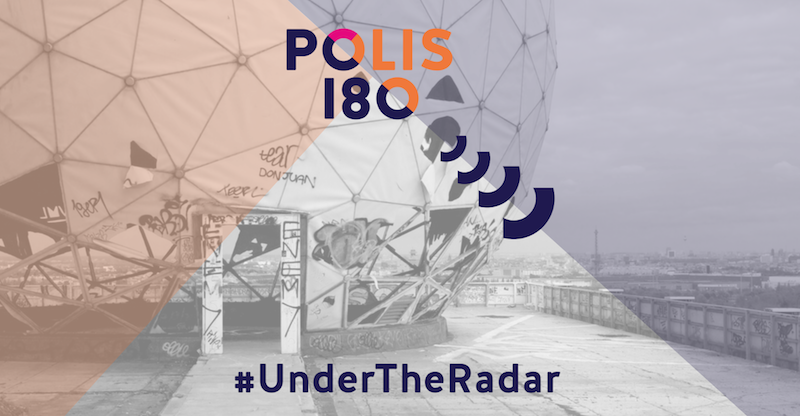In another episode of #UTR, the Polis Blog presents four news stories that undeservedly slipped through the cracks of recent media attention.
A Column by Anne-Kathrin Glück
“The time, it is to be hoped, is gone by when any defence would be necessary of the ‘liberty of the press’ as one of the securities against corrupt or tyrannical government”, John Stuart Mill wrote in the 1850s when journalism was to become the fourth estate. While defying the restrictive media ordinance in England, Mill defended the right to judge which was reserved for all mankind and denounced the obligation of power that is to suppress the opinion contradicting the (fallible) doctrine. A few decades later, we challenge the role of the media as we believe in the indispensable duty of informing ourselves neutrally and fairly. Is that what liberty of the press means? Or is the purpose of the media overrated? According to Mill, neither one opinion nor the other upholds the truth for all mankind, but everyone should be entitled to their own opinion. And journalism providing information in the service of democracy is surely as legitimate as we allow it to be.
Polis Programme European Union: Circular Economy Crucial for European Commission
The Circular Economy Package (2015) proves beneficial a recent report has confirmed. According to the first Vice-President Frans Timmermans, the two major goals are to build a circular economy finance support platform to facilitate investment proceedings and offer guidance to the member states. The upcoming Circular Economy Conference in March will define new goals for 2017/18. Reusing treated water, for instance, is a main issue for European legislators. Southern European countries affected by water scarcity already practice water reuse, which requires lower investment costs and less energy, helps to reduce greenhouse gas emissions, and covers peaks in water demand. Member states in Northern Europe, however, have shown little interest in water reuse schemes. As a consequence, the Commission is taking member states that continue to ignore EU reuse schemes to the European Court.
Why should this be on our radar? An increasing population plus climate change force us all to act on these issues, however, we are encountering limited awareness and a lack of support for resource productivity.
Polis Programme Migration: ‘Social Scale’ Made in Mannheim
In summer 2016, students of the University of Kaiserslautern and refugees have built a community centre on site of the former American military barracks in Mannheim – a project that combines scientific expertise, respective needs and community spirit. The Gemeinschaftshaus Spinelli is a reception centre for displaced people and asylum seekers, and was created in response to the desolate conditions of Mannheim’s refugee camps. In due time, the initiators will attend the international architecture exhibition Making Heimat. Germany, Arrival Country in Frankfurt to advertise their project and foster discussions about integration through participation and education.
Why should this be on our radar? We know very little about the living conditions in refugee camps, but the Spinelli project highlights the impact and value of community service while dealing with real life issues.
Polis Programme Peace & Security: Deep Line of Conflict in the South Caucasus
The President of the European Council Donald Tusk and Armenian President Serzh Sargsyan have announced the conclusion of the negotiations on the new EU-Armenia Comprehensive and Enhanced Partnership Agreement. While in Brussels, Sargsyan also met with NATO Secretary General Jens Stoltenberg who praised Armenia’s commitment to NATO’s Building Integrity Programme, but at the same time encouraged President Sargsyan to find a diplomatic solution for the ongoing military conflict with Azerbaijan. The war dates back to 1988 and the line of contact remains a powder keg in the South Caucasus region until this day, with both countries maintaining close ties with Russia and Iran. Just recently, Turkey has condemned the Armenian government for using heavy weapons against Azerbaijani soldiers.
Why should this be on our radar? Global players protect and pursue their national interests. Without a doubt the historical relevance of Armenia’s independence contributes to recent negotiations. Nevertheless, people are dying, families are being torn apart while both sides are maintaining their territorial claims.
Polis Programme Digitalisation & Data Security: Ready for Street-Level Democracy?
E-governance, digital democracy, transparent democracy: Applications will sooner or later enhance life in the 21st century and beyond. Of course the more complex a political issue the more time is needed to establish platforms for citizens to make use of information and communications technologies. That is why the Connecticut-based company SeeClickFix provides a free mobile app to assist users communicating with local governments about non-emergency issues. Founded in 2008, the startup reached almost one million users worldwide. U.S. Senator Chris Murphy selected the company as “Murphy’s Innovator of the Month” (!). The concept has received praise from government officials as well as users for improving living conditions in more than 8,000 neighbourhoods.
Why should this be on our radar? Start locally, think globally?!
In this editor’s column, newsworthy issues in foreign policy that slipped through the cracks of public attention are informally listed in a Top 4 linked to the four Polis180 Programs European Union, Migration, Peace & Security and Digitalisation & Data Security.
Image source: „teufelsberg ii„, von Büsenfeld, http://bit.ly/1RMYPlj, lizensiert unter Creative Commons license 2.0.: https://creativecommons.org/licenses/by/2.0/.
